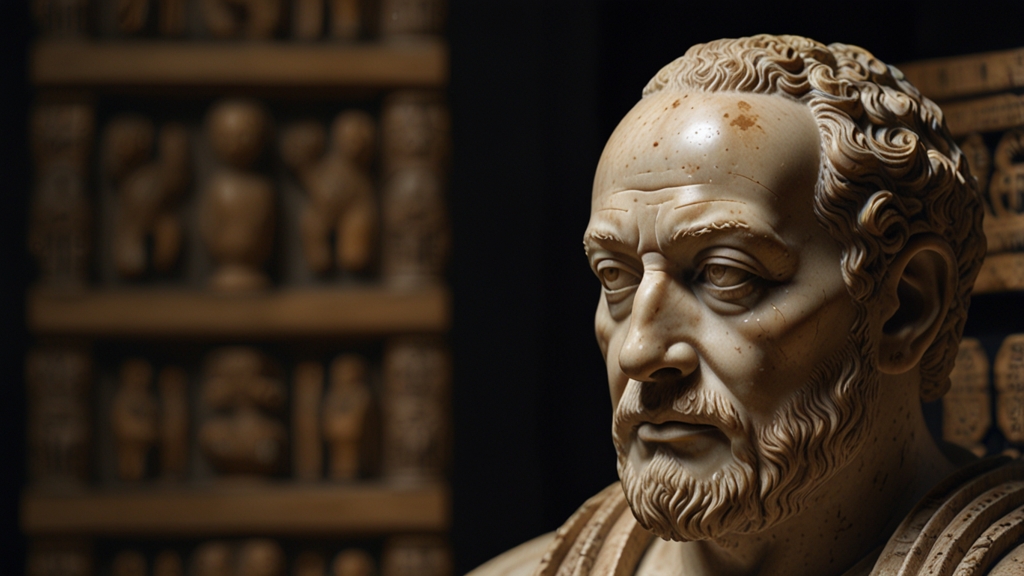The Surprising History Behind Your Favorite Psalms
The Book of Psalms is one of the most beloved and frequently read books in the Bible. Comprised of 150 individual psalms, it is a rich tapestry of hymns, prayers, and poems that have offered comfort, guidance, and inspiration to countless people over thousands of years. However, the stories behind these ancient texts are often as compelling as the psalms themselves. Let's delve into the surprising history behind some of the most cherished psalms.
The Origins: King David and His Legacy
Many of the psalms are attributed to King David, the revered second King of Israel, known for his musical prowess and deeply spiritual nature. According to tradition, David wrote these psalms during various stages of his life—some during times of triumph, and others in periods of deep anguish and repentance.
"The LORD is my shepherd; I shall not want." – Psalm 23:1
Psalm 23 is one of the most famous psalms, often recited in both religious and secular contexts. It is believed to have been written by David during one of the most peaceful and reflective periods of his life. The imagery of God as a shepherd reflects David's own experience as a shepherd in his youth, making the psalm a heartfelt expression of trust and security.
Psalms of Ascent: Songs for Pilgrimage
The Psalms of Ascent (Psalms 120-134) are a collection with a special purpose. These were recited by Jewish pilgrims traveling to Jerusalem for the major festivals. The term "ascent" refers to the physical journey to the elevated city of Jerusalem, but it also signifies a spiritual ascent, a drawing nearer to God.
"I will lift up mine eyes unto the hills, from whence cometh my help. My help cometh from the LORD, which made heaven and earth." – Psalm 121:1-2
A psalm of trust and hope, Psalm 121 encouraged the pilgrims on their arduous journey. This psalm reminds the faithful that their ultimate security comes not from their surroundings, but from God, the Creator.
The Exilic Psalms: Songs of Sorrow and Hope
Some psalms were written during the Babylonian Exile, a period of immense suffering and displacement for the Israelites. Psalms during this time reflect themes of lament, but also hope and a deep yearning for redemption.
"By the rivers of Babylon, there we sat down, yea, we wept, when we remembered Zion." – Psalm 137:1
Psalm 137 captures the deep pain and sorrow of the Israelites in exile. The vivid imagery and emotional intensity of this psalm make it one of the most poignant expressions of grief in the entire psalter. Yet, despite its mournful tone, it also conveys a powerful longing for home and trust in eventual divine justice.
Psalms of Praise and Thanksgiving
Not all psalms are solemn or meditative; many are jubilant hymns of praise and thanksgiving. These psalms often celebrate God's creation, His mighty deeds, and His steadfast love and mercy.
Psalms like Psalm 100 invite worshipers to enter God's presence with joy and gratitude:
"Make a joyful noise unto the LORD, all ye lands. Serve the LORD with gladness: come before his presence with singing." – Psalm 100:1-2
This psalm encapsulates the essence of worship in the ancient Israelite tradition, emphasizing communal celebration and joyous acknowledgment of God's goodness.
Conclusion
The Book of Psalms offers a unique window into the soul of ancient Israel, capturing the full range of human emotion and the complexities of faith. From the reflective solitude of Psalm 23 to the communal joy of Psalm 100, and the sorrowful exile reflections of Psalm 137, each psalm carries with it a rich historical and spiritual heritage. By exploring the stories behind these treasured texts, we gain a deeper appreciation of their timeless beauty and enduring significance.











